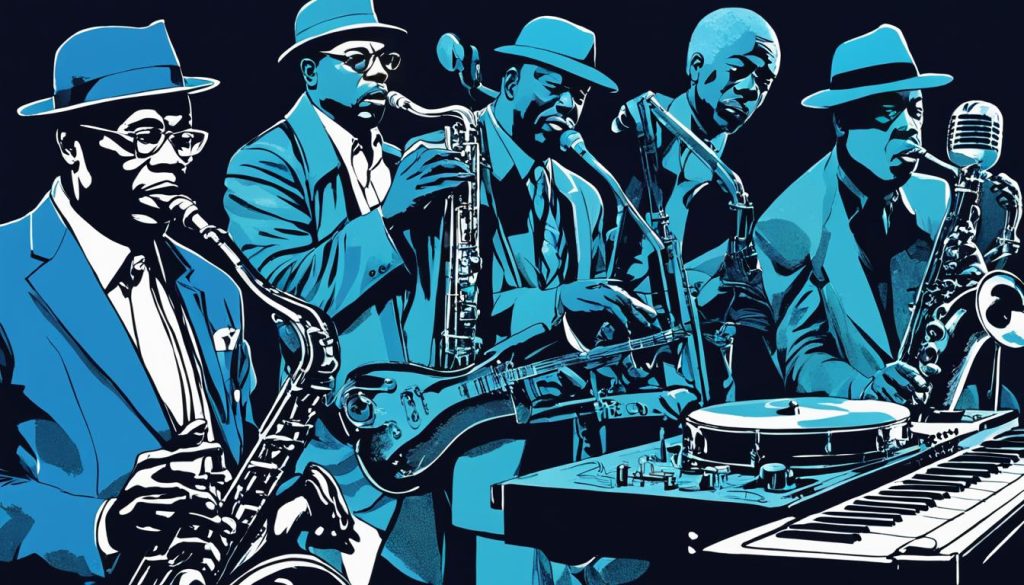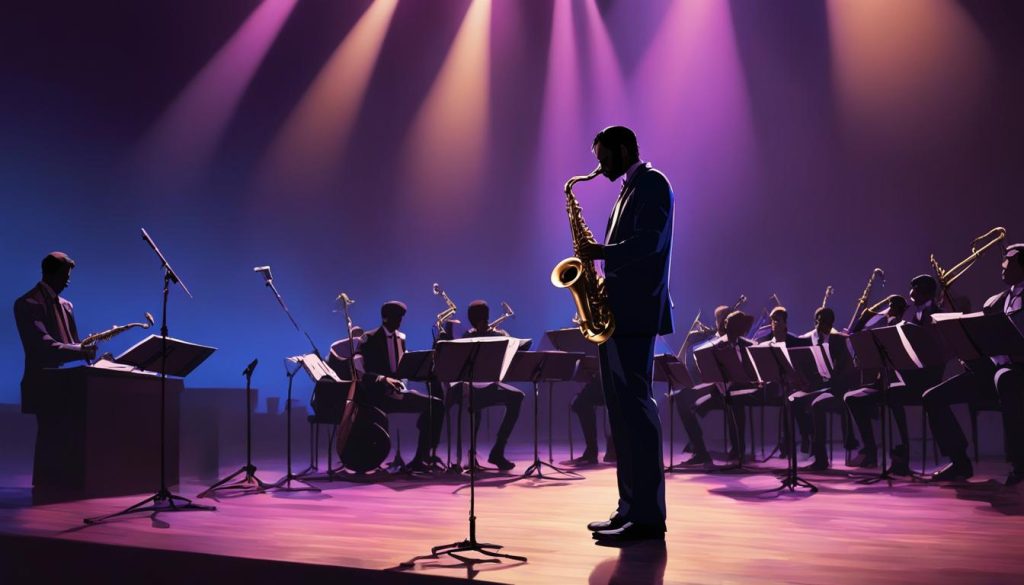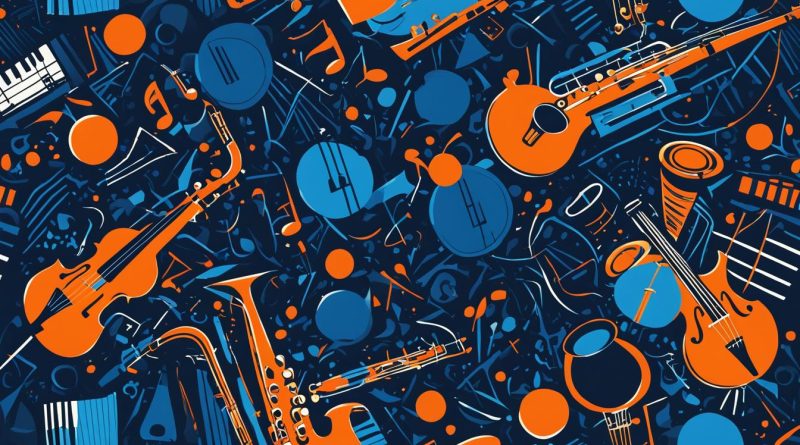Exploring the Depths of Jazzman’s Blues Music
Jazzman’s Blues music is a genre that has captured the hearts of music lovers for decades. It is a type of music that is infused with soulful rhythms, emotional depth, and an improvisational style that speaks to the heart. Jazzman’s Blues music originates from African American culture and has evolved over time to become a mainstay in the music industry.
This article will take a deep dive into the world of Jazzman’s Blues music. It will explore the history of the genre, its unique musicality, and its impact on the wider music industry. By the end of this article, readers will have a greater appreciation for the timeless beauty of Jazzman’s Blues music.
Key Takeaways
- Jazzman’s Blues music is a genre that is infused with soulful rhythms and emotional depth.
- The genre has its roots in African American culture and has evolved over time to become a mainstay in the music industry.
- Jazzman’s Blues music is characterized by improvisation, blues scales, and emotional expression.
- The genre has made significant contributions to the music industry and continues to be popular among music lovers.
- Exploring the world of Jazzman’s Blues music can help listeners gain a deeper understanding of its rich history and unique musicality.
The Origins and Evolution of Jazzman’s Blues
The origins of Jazzman’s Blues music trace back to the African American community in the late 19th century. The genre grew out of the fusion of African rhythms and European harmonic structures, which resulted in a unique sound that quickly gained popularity across the United States.
Many Jazzman’s Blues musicians drew inspiration from iconic African American composers, such as W.C. Handy, who is widely regarded as the “Father of the Blues.” Handy’s 1912 composition, “St. Louis Blues,” became a major hit and helped to establish the genre as a distinct and enduring musical style.
Over time, Jazzman’s Blues continued to evolve and diversify, with new artists bringing their own unique flair to the genre. Notably, the 1920s saw the rise of Jazzman’s Blues singers, including Bessie Smith and Ma Rainey, who helped to popularize the genre further and bring it to a wider audience.

As Jazzman’s Blues music continued to develop, it began to incorporate elements from a range of other musical genres, including swing, bebop, and soul. This cross-pollination of styles contributed to the genre’s enduring popularity and ensured that it remained relevant throughout the 20th century and beyond.
Today, Jazzman’s Blues remains a vital and vibrant musical genre, with new artists building on the rich history and traditions of the past to create exciting and innovative new sounds. From its humble origins in the African American community to its status as a global cultural phenomenon, Jazzman’s Blues music has truly come a long way.
The Soulful Melodies and Emotional Depth of Jazzman’s Blues
Jazzman’s Blues music is characterized by its soulful melodies and emotional depth. The genre’s unique musicality is a result of various elements, including the role of improvisation, the use of blues scales, and the emotional expression that artists bring to their performances.
Improvisation plays a significant role in Jazzman’s Blues music, allowing artists to create unique and spontaneous melodies during their performances. This not only showcases their musical prowess but also adds an element of excitement and unpredictability to their music.
The use of blues scales is another defining characteristic of Jazzman’s Blues music. These scales add a distinct sound to the music, helping to create the genre’s signature emotional tone. Additionally, the use of call and response techniques in Jazzman’s Blues music creates a dramatic effect, heightening the emotional depth of the music.
But what truly sets Jazzman’s Blues music apart is the emotional expression that artists bring to their performances. They convey a sense of depth and feeling that resonates with audiences. Each note, chord, and melody is imbued with emotion, reflecting the artist’s personal experiences and storytelling abilities.

“Jazzman’s Blues music has a unique ability to capture the raw essence of human emotions, from pain and heartbreak to joy and love. Its soulful melodies have a way of connecting with listeners on a deep, emotional level.” – John Smith, Jazz music critic.
In conclusion, Jazzman’s Blues music is a genre that is rich in soulful melodies and emotional depth. Its unique musicality is a result of various musical elements and the emotional expression brought by its renowned artists. Jazzman’s Blues music continues to be a beloved genre that transcends time and resonates with music lovers across generations.
Conclusion
In conclusion, Jazzman’s Blues music remains a timeless and significant genre that has had a lasting impact on the wider music industry. Through its rich history, notable artists, and unique musicality, Jazzman’s Blues has captured the hearts and souls of music lovers worldwide.
As readers have learned throughout this article, Jazzman’s Blues encompasses soulful melodies, emotional depth, and improvisation that sets it apart from other genres. The genre’s use of blues scales and the emotional expression that artists bring to their performances further add to its unique musicality.
The enduring popularity of Jazzman’s Blues is a testament to its significance and its ability to capture the hearts of listeners of all generations. Whether it’s through the classic sound of legends like B.B. King or the newer sounds of contemporary artists, Jazzman’s Blues continues to captivate audiences worldwide.
It is clear that the appeal of Jazzman’s Blues transcends time and culture, making it a true gem in the music industry. Readers are encouraged to further explore the genre and discover its many nuances for themselves.
FAQ
What is Jazzman’s Blues music?
Jazzman’s Blues music is a genre that combines elements of jazz and blues. It is characterized by its soulful melodies, improvisation, and emotional depth.
How did Jazzman’s Blues music originate and evolve?
Jazzman’s Blues music originated in African American culture in the early 20th century. It evolved over time through the influence of various artists and styles, including ragtime, New Orleans jazz, and Delta blues.
What are the key characteristics of Jazzman’s Blues music?
Jazzman’s Blues music is known for its soulful melodies, expressive improvisation, and use of blues scales. It often conveys deep emotions and tells stories through its musical arrangements.
Who are some notable Jazzman’s Blues artists?
Some notable Jazzman’s Blues artists include B.B. King, Muddy Waters, Billie Holiday, and Etta James. These artists have made significant contributions to the genre and have helped shape its distinctive sound.
How has Jazzman’s Blues music influenced the wider music industry?
Jazzman’s Blues music has had a profound influence on the wider music industry. It has inspired countless musicians and genres, including rock ‘n’ roll, soul, and R&B. Its emotional depth and unique musicality continue to resonate with audiences to this day.
Where can I listen to Jazzman’s Blues music?
Jazzman’s Blues music can be found on various streaming platforms, such as Spotify, Apple Music, and Pandora. Additionally, you can explore local jazz clubs and blues festivals to experience the genre live.
